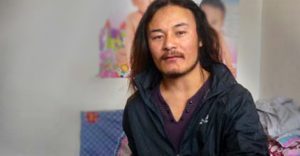| [29 April 2016] The results of the Tibetan parliamentary elections were announced on 27 April, with Dr Lobsang Sangay, the incumbent Sikyong (Tibetan Prime Minister in exile), returned to office with 57% of the vote. Dr Sangay, who will serve a second and final five-year term, said the democratic election sent a “message of hope” to Tibetans inside Tibet.
The elections, for the 16th Tibetan Parliament-in-exile, were held on 20 March. As well as voting for the Sikyong, Tibetans also voted for 45 members of parliament. It was the second election since the Dalai Lama stepped down as the head of the government-in-exile in 2011. The election was observed by an independent international delegation, which included Tibet Society President and former UK MP Norman Baker. (Click here to read Mr Baker’s observations on the Tibetan elections.)
In an interview with the New York Times, Dr Sangay said he would work harder in his second term as Sikyong to re-open dialogue with China in order to resolve the future of Tibet. “My principal objective will be to resolve the issue of Tibet through the Middle Way Approach,” Dr Sangay told the New York Times. The Middle Way Approach seeks genuine autonomy for Tibet under the Chinese Constitution, in order to protect the culture, religion and identity of the Tibetan people. The Approach was conceived by the Dalai Lama in 1988 after calls for independence were rejected by the Chinese government. Speaking to Reuters, Dr Sangay observed that with the economic growth of China “human rights are secondary to investment” for Western countries. He said he will therefore be “traveling more to promote awareness about Tibet”. Dr Sangay won 33,876 votes (57%), whilst his rival Mr Pempa Tsering, the former Speaker of the Tibetan Parliament in exile, won 24,864 votes (42%). According to the Election Commission, of the approximate 150,000 Tibetans in exile, 90,377 were eligible to vote with 59,353 (66%) casting a vote in this election. Further reading: CTA | VOA | NY Times | Reuters |
||||
|
|
||||
|
Tibet Society, the world’s first Tibet support group, was founded in 1959. Funded by its members, it has been working for over 50 years to seek justice for Tibet through parliamentary lobbying, campaigns and actions. Help keep Tibet alive by joining Tibet Society today. Annual membership £24; Family £36; Life £500.
|
||||



